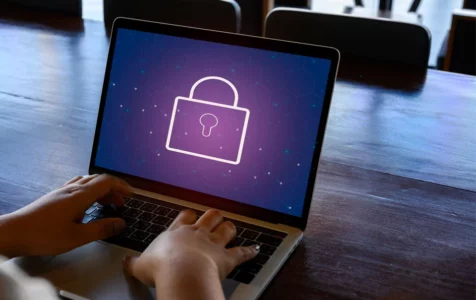Digital security has become very relevant since the development of Internet technologies. Humanity has learned to create a large number of viruses that are aimed at data theft and extortion. That is why you need to protect yourself and take all precautions. The first thing you can do is install an antivirus. Such software should not be neglected. But this is not all that is useful to you. Here are the top ways to protect the data on your computer.
Backup Your Data
Backing up is very important to maintain access to your data. The point is that your hard drive can become unusable. Let’s say you have damaged a sector and cannot access the sections where your accounting files or the new album is stored. What should a computer user do? A backup will help prevent data loss and protect you from having to recover hard drives for months. You can use additional external storage or cloud servers.
Use Anti-Malware Apps
The next step to protect your data is to install the necessary software. The fact is that cybercriminals use malware code to archive data, hide folders and block user access to certain sections of the disk. In addition, the obtained data can be used for criminal purposes. You already know that you need to install an antivirus. But don’t forget about anti-malware protection. Many software products can detect and block malicious code. Then your data will remain safe. This is especially true for students.
Destroy Your Old HDDs
If you have old hard drives that you want to throw away, then worry about your safety. The fact is that even if you formatted and deleted individual disk sectors, attackers still have a chance to recover data. You should smash hard drives and damage major movable parts. Then attackers will not be able to read the information. This kind of precaution seems like overkill, but you’d rather look weird now than sad tomorrow when your data is publicly available online.
Update Your OS & Software
Updates are not designed to waste users’ time but to improve the performance of the operating system. In addition, developers constantly find minor or serious vulnerabilities in the code. Updates allow you to fix bugs. As a result, your computer becomes more reliable. Don’t forget about updates, especially if you work remotely. This is a great way to avoid data loss problems. Your computer will become much safer.
Secure Your Wi-Fi
If you have a Wi-Fi router, don’t forget to set a password. You can also limit the list of MAC addresses that can connect to your Internet channel. Configure data encryption and click on the items to enable real-time protection. The point is, routers are the most vulnerable part of your network. If you do not configure the protection system, intruders can quickly gain access to your computer. Of course, hackers don’t sit in front of your window and wait for you to lose your guard. But prior prevention and taking precautions will help you maintain the required level of safety.
Use a Firewall
A firewall is another protective barrier between you and Internet threats. The fact is that this software component blocks malicious attacks and allows you to connect to the Internet more securely. Even a free firewall will help you feel secure. Specify which processes are allowed on your system and set up basic use cases. Then attackers will be less likely to steal your data. And don’t forget to install updates. Then your firewall will work reliably.
Encrypt Data & Use Archives
Many people think that data encryption is only for the paranoid. But what if your computer gets hacked? Then attackers will gain access to your data. Most people don’t even consider it necessary to set a password. Encrypt the most important information or at least create ZIP archives with passwords. Then attackers will have to spend a lot of time to gain access to your data. If you exchange personal data with someone on the network, you should use instant messengers with self-deleting messages. Then your data will be safe.
Use Password Managers
Don’t create a text file listing your passwords. It’s reckless. Imagine that you closed the door of your house and left your keys on your doorstep. If you want to have quick access to your data, then use secure password managers. Then your PC will be protected. In addition, you should constantly update such applications and change the sequence of numbers in passwords for greater security.
Final Words
You can keep data safe on your computer if you follow the basic rules. Don’t forget to keep your apps and operating system up to date. Protect your data with passwords or use encryption algorithms. Then attackers will have less chance of gaining access to your archives.
